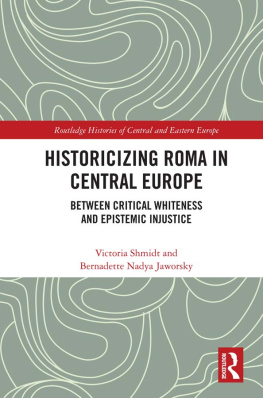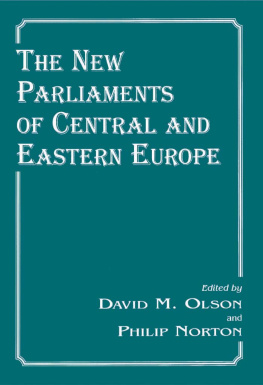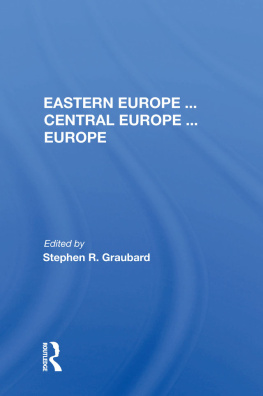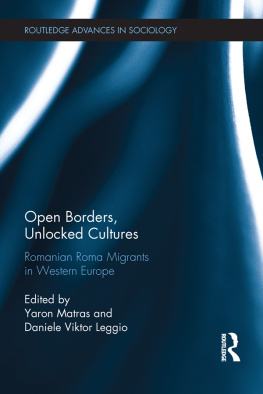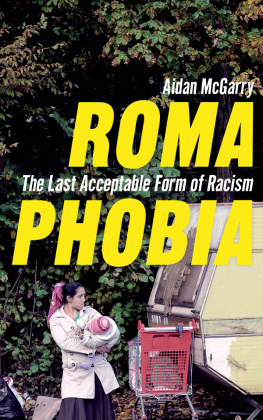Victoria Shmidt - Historicizing Roma in Central Europe: Between Critical Whiteness and Epistemic Injustice (Routledge Histories of Central and Eastern Europe)
Here you can read online Victoria Shmidt - Historicizing Roma in Central Europe: Between Critical Whiteness and Epistemic Injustice (Routledge Histories of Central and Eastern Europe) full text of the book (entire story) in english for free. Download pdf and epub, get meaning, cover and reviews about this ebook. year: 2020, publisher: Routledge, genre: Politics. Description of the work, (preface) as well as reviews are available. Best literature library LitArk.com created for fans of good reading and offers a wide selection of genres:
Romance novel
Science fiction
Adventure
Detective
Science
History
Home and family
Prose
Art
Politics
Computer
Non-fiction
Religion
Business
Children
Humor
Choose a favorite category and find really read worthwhile books. Enjoy immersion in the world of imagination, feel the emotions of the characters or learn something new for yourself, make an fascinating discovery.
- Book:Historicizing Roma in Central Europe: Between Critical Whiteness and Epistemic Injustice (Routledge Histories of Central and Eastern Europe)
- Author:
- Publisher:Routledge
- Genre:
- Year:2020
- Rating:5 / 5
- Favourites:Add to favourites
- Your mark:
Historicizing Roma in Central Europe: Between Critical Whiteness and Epistemic Injustice (Routledge Histories of Central and Eastern Europe): summary, description and annotation
We offer to read an annotation, description, summary or preface (depends on what the author of the book "Historicizing Roma in Central Europe: Between Critical Whiteness and Epistemic Injustice (Routledge Histories of Central and Eastern Europe)" wrote himself). If you haven't found the necessary information about the book — write in the comments, we will try to find it.
In Central Europe, limited success in revisiting the role of science in the segregation of Roma reverberates with the yet-unmet call for contextualizing the impact of ideas on everyday racism. This book attempts to interpret such a gap as a case of epistemic injustice. It underscores the historical role of ideas in race-making and provides analytical lenses for exploring cross-border transfers of whiteness in Central Europe. In the case of Roma, the scientific argument in favor of segregation continues to play an outstanding role due to a long-term focus on the limited educability of Roma. The authors trace the long-term interrelation between racializing Roma and the adaptation by Central European scholars of theories legitimizing segregation against those considered non-white, conceived as unable to become educated or civilized. Along with legitimizing segregation, sterilization and even extermination, theorizing ineducability has laid the groundwork for negating the capacity of Roma as subjects of knowledge. Such negation has hindered practices of identity and quite literally prevented Roma in Central Europe from becoming who they are. This systematic epistemic injustice still echoes in contemporary attempts to historicize Roma in Central Europe. The authors critically investigate contemporary approaches to historicize Roma as reproducing whiteness and inevitably leading to various forms of epistemic injustice. The methodological approach herein conceptualizes critical whiteness as a practice of epistemic justice targeted at providing a sustainable platform for reflecting upon the impact of the past on the contemporary situation of Roma.
Victoria Shmidt: author's other books
Who wrote Historicizing Roma in Central Europe: Between Critical Whiteness and Epistemic Injustice (Routledge Histories of Central and Eastern Europe)? Find out the surname, the name of the author of the book and a list of all author's works by series.

